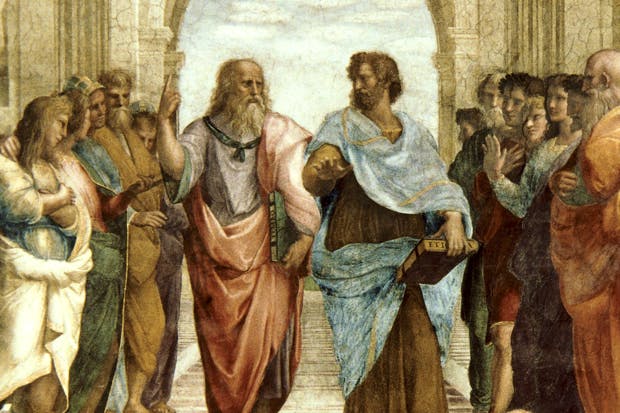A gay friend phones over the New Year break. A lovely chap (let us call him Richard) and long retired, he has done well and made money over the years. Richard has called to tell me how he is spending it. I know that in the past he had helped the gay lobbying organisation Stonewall; and that in memory of his late civil partner he had helped endow a local state school in need of funds. Now, he tells me, he has bought a house for a young friend and his partner: someone who helped Richard during the low time after his bereavement. ‘There was no way they could find the savings to get their feet on the ladder,’ he tells me, ‘and I just thought “What’s all my money for if not to do some good? I’ve enough for my own needs, and I’ve looked after my family; so why not spread the rest around?”’ The pleasure in his voice is palpable.
His phone call puts me in mind of another old friend, also homosexual, now long dead, who spent his seventies and early eighties designing and planting the most beautiful garden — trees and shrubs were his greatest love — above the river banks by his bungalow in Derbyshire: a garden whose maturity he knew he would never see. What spare time and money this left him he spent with, and on, his friends at home and abroad, helping more than one establish their careers. Then my mind moved to Michael Bishop, now Baron Glendonbrook, who founded British Midland Airways, amassed a small fortune, and in retirement is giving it away through a charitable foundation that innumerable good causes have reason to thank. Bishop is also gay.
It was a writer I admire tremendously (I think The Spectator’s Paul Johnson has often been touched by genius) who stung me into the rudest piece I’ve ever written: aimed at him, as it happens, and the first of a series for this magazine which has this week continued for exactly 18 years. In his And Another Thing column on 6 January 1996, Mr Johnson had written this: ‘[John] Major is constantly being praised, most recently in this journal, by Matthew Parris, a self-outed protagonist of queerdom whom I think of as the Times Sodom Correspondent (they have a stringer in Gomorrah too, but mum’s the word about him). So the homosexuals like Major.’
This was not Mr Johnson’s first foray into such territory. Two years earlier he had opened an essay headlined ‘From children to rent boys in one parliamentary vote’ by remarking, ‘Nothing is more disagreeable than having to write about male homosexuality….’ but had in fact put himself dutifully through the ordeal with surprising regularity, writing a year later that ‘the theft of this word [‘gay’] by Californian sodomites … and cravenly acquiesced in by lazy sub-editors … who should know better, means that many fine old songs are now completely unperformable.’ Mr Johnson’s defence of linguistic standards has never been extended to protect that good old-fashioned word ‘queer’ in its original meaning, and some fine old sayings like ‘there’s nowt so queer as folk’ still await rescue. So does ‘faggot’.
Back in 1996, however, I experienced a moment of despair. I thought highly of Paul (and still do), so his words stung. On matters of love and sex we are all entitled to our own tastes and moral judgments, but what stood out from Johnson’s writing here — apart from the personal disgust that was his prerogative — was an implicit theory about same-sex relationships that was wounding. I’m sure now that it was utterly erroneous.
The Pauline view reflected a belief that homosexuals were inherently hedonistic, seeking sex only for the sake of sex; and that while heterosexual society organises itself through successive generations, homosexual society does so by forming bridges between otherwise unconnected citizens. Gays would be drawn away from the values of constancy and love, and duty to elders and successors. They would become what Johnson used to call ‘degenerates’ in more than the physical sense, and live only for today, and for pleasure. The future could go hang.
The theory has a certain plausibility, which made it sting the more. But I did not recognise in myself nor in many gays I knew that carelessness or shallow pleasure-seeking. Rejecting Johnson, I took refuge in the view of Plato and his culture: an analysis with equal plausibility. This view, current among many Ancient Greeks, was that heterosexual reproduction was more likely to distract men from wider social obligations, because they would focus on advantaging family and the next generation, rather than root their interests in society and democracy as a whole. According to this view, same-sex couples would make ideas and values their children; the public good would be ‘family’ to them; and they would not be distracted from public duty by the desire to spawn, endow and promote copies of themselves for the next generation. Gay men would prove more selfless politicians.
Doubtless this too distorts reality, which is as various as people are various. But a lifetime’s observation — especially culminating in the cultural and legal changes which can liberate gay men from furtive and casual sex — has finally and very firmly convinced me that there really is something in it.
It is a matter of fact that since decriminalisation and civil partnership, the shift in gay culture, particularly among the older generation, has been noticeable. An innate conservatism seems to have surfaced, and civic-mindedness and an urge to settle down and be responsible citizens no longer needs to hide itself. I know many wealthy gay men, but none — literally none — who are not involved in investing money and effort in personal projects associated with the public good. We think very hard about a future when we are not here.
Paul is an old man now; and soon I will be too. I would like to think that our dispute is over. But, 18 years later, I remain sure it should be resolved in my favour.
Got something to add? Join the discussion and comment below.
Get 10 issues for just $10
Subscribe to The Spectator Australia today for the next 10 magazine issues, plus full online access, for just $10.















Comments
Don't miss out
Join the conversation with other Spectator Australia readers. Subscribe to leave a comment.
SUBSCRIBEAlready a subscriber? Log in